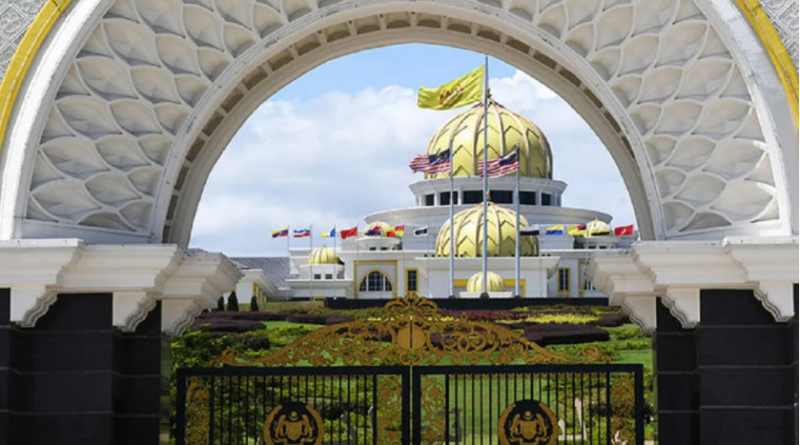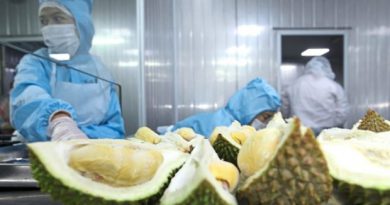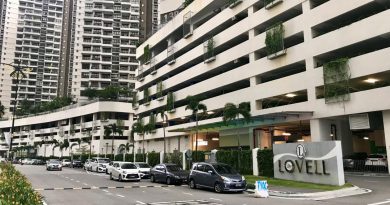Emergency reduces political tension, focuses on addressing worsening Covid-19 pandemic, say experts
KUALA LUMPUR (Jan 13): The proclamation of emergency at a time when the Covid-19 pandemic is worsening, along with the endless politicking in the country, is regarded timely to ensure the safety and survival of the people, according to constitutional experts.
They opined that with the proclamation of emergency, the focus, from now on, will be one hundred per cent on efforts to fight the spread of Covid-19 so that the pandemic does not become worse, while at the same, restore situation in the country.
A constitutional expert from Universiti Teknologi Malaysia (UTM), Dr Muhammad Fathi Yusof regarded the proclamation of emergency as a very good move as it could also ease, and ‘cool down’ the political tension in the country, besides focusing on efforts to combat Covid-19.
“Firstly, this emergency proclamation is a very apt move to ensure that efforts to curb the spread of Covid-19 can be implemented quickly, firmly and comprehensively, without being bound by administrative or bureaucratic red tapes.
“Indirectly, it can also ensure that there will be no general election during the period … I believe it is to ensure that all political leaders, and also the people, focus on the real problems of the country, namely Covid-19, economic problems and the hardship facing the people, not on the political crisis,” he told Bernama.
He said since the proclamation of the emergency could act as a mechanism to avoid an election from being held, the move is relevant as there would be campaign activities and movement of voters which could increase the risk of Covid-19 infection if an election is held.
“There may be certain quarters that want an election to be held soon or want to take over the government when Covid-19 is at its worst … I believe the move in proclaiming emergency in the country will give some political peace, at least until Aug 1,” he added.
However, he said, to maintain the concept of check and balance, it would not be wrong for Parliament to convene its meeting during the emergency period to allow its members to bring up matters concerning their constituents.
“If parliamentary session continues to be held, I believe there will not be any proposal for a motion of no-confidence, or the like, because everyone understands what the focus should be, which is to solve this bigger problem.
“Nevertheless, the government has the right to either adjourn the parliament sitting or change the method of the sitting by holding it through online conferencing by applying certain ordinances or the Emergency Ordinance if there is a risk of Covid-19 infection if the sitting is held,” he said.
Muhammad Fathi also regarded the establishment of the Independent Special Committee as a very good move to ensure the proclamation of the emergency is truly aimed at dealing with the pandemic and not for political purposes.
The presence of opposition representatives in the committee shows the seriousness of the government in ensuring that it does not affect the democratic process, he said.
Meanwhile, a legal expert from the International Islamic University of Malaysia (IIUM) Prof Dr Nik Ahmad Kamal Nik Mahmood said although six states had been subjected to the movement control order (MCO), an emergency was still declared as it would help the government to deal with the critical pandemic situation faster.
“During the emergency period, the Yang di-Pertuan Agong and the executive are empowered to formulate laws and take drastic action to address the current threat.
“Laws that are stricter than the MCO can be formulated through the Emergency Ordinance. For example, an ordinance can be formulated to raise the compound to those who disobey regulations, from RM1,000 to a bigger amount, and even for temporary detention, if the need arises.
Nik Ahmad Kamal, who is also the head of the Governance, Legal and Public Management Cluster, National Council of Professors, said in a situation where virus infection is difficult to control, added with the pressure facing hospitals and frontliners in the health services, declaring an emergency is the most effective way.
“An emergency can be declared when the country’s security, economy, or public order is threatened, and in the context of Covid-19, all the elements for the proclamation of emergency exist … Covid-19 infection is on the rise every day, hospitals are pressured with the increasing numbers of patients , the people are worried, the economy is affected and so on, “he said.
Meanwhile, the incumbent Institution of the Malay Rulers Chair at Universiti Teknologi Mara (UiTM), Professor Dr Shamrahayu Abdul Aziz said the proclamation of emergency is also a preventive measure to overcome the daily increase in Covid-19 cases in the country.
“What differentiates it, for example, [from] the emergency declared in Batu Sapi, where it was to postpone the by-election, while the proclamation of emergency [yesterday] was more to address the spread of Covid-19,” he said when contacted through the Malaysia Petang Ini programme which was broadcast live on Bernama TV yesterday.
Shamrahayu said Yang di-Pertuan Agong Al-Sultan Abdullah Ri’ayatuddin Al-Mustafa Billah Shah had the right to determine the duration of the emergency period.
Yesterday, Al-Sultan Abdullah proclaimed an emergency that will be enforced up to Aug 1 as a proactive measure to contain the worsening Covid-19 pandemic in Malaysia.
Datuk Pengelola Bijaya Diraja of Istana Negara Datuk Ahmad Fadil Shamsuddin said in a statement that His Majesty decreed that the emergency be in force up to that date, or earlier if the number of positive Covid-19 cases can be effectively controlled and reduced.
Source: TheEdgeMarkets




